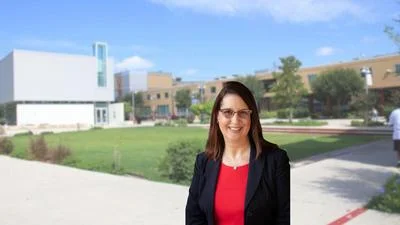Texas Republican gubernatorial candidate Don Huffines recently criticized the Denton City Council's decision to allow non-citizens to hold positions on city boards.
Denton City Council recently voted 5-2 to allow noncitizens to hold positions on city boards, according to the Texas Scorecard. One of the members who voted in opposition, Jesse Davis, suggested an amendment stipulating that the noncitizens need to at least be legal residents, but none of the other council members supported that amendment. Non-citizens regardless of immigration status are now eligible to serve on any committee, board, or commission, with the exception of the Public Utility Board.
“Non-citizens have no right to take part in our government,” Huffines said. “China already sends communists to infiltrate our universities, how long before they send agents to start passing laws in Texas cities? As Governor, I will call on the legislature to pass a bill banning non-citizens from all government positions in Texas.”
Denton is not alone in allowing noncitizens to participate in local government. According to FOX News, in New York City, foreign nationals who have lived in the city for at least 30 days are now allowed to vote in local elections. This new law applies to around 800,000 NYC residents. In San Francisco, foreign nationals are allowed to participate in school board elections if they have a child in the school system. The measure was introduced in 2016 and set to expire in 2021, but the San Francisco Board of Supervisors voted unanimously in October to make it permanent.
Texas Secretary of State John B. Scott has made it clear that any municipality passing a law similar to those of NYC and San Francisco would be violating Texas state law. Immigrants comprise 17% of Texas's population, and an estimated 1.6 million of those immigrants were residing in the country illegally as of 2016, according to FOX News.
China is the highest contributor of foreign students to U.S. colleges and universities. In the 2020/21 school year, more than 317,000 Chinese citizens were enrolled in school in the U.S., according to Statista.
In a September 2020 fact sheet, the U.S. Department of State detailed several threats posed by CCP/PRC-initiated programs to American colleges, universities, faculty, and research programs.
“The United States welcomes international students, researchers, and scholars to participate in America’s outstanding academic environment,” a State Department fact sheet states. “The vast majority are valuable contributors to campus life, embracing international academic values and posing no threat to American research integrity or security.”
Recognizing the threat to US institutions, national security, and trade secrets, the U.S. Department of Justice’s China Initiative is (among other things) actively engaged in countering “non-traditional collectors (e.g., researchers in labs, universities and the defense industrial base) that are being co-opted into transferring technology contrary to U.S. interests” as well as educating “colleges and universities about potential threats to academic freedom and open discourse from influence efforts on campus.”
Don Huffines recognizes that China is the U.S.'s top geopolitical threat. If he is elected, his plan to curtail Chinese influences includes "Pursuing legal reforms that protect Texans’ technology and other intellectual property from being stolen."
Elected in 2014, Gov. Greg Abbott is currently serving as the 48th Governor of Texas. Before being elected governor, Abbott was the longest-serving Attorney General of Texas.
Huffines will face Abbott in the gubernatorial primary on March 1. From 2015 to 2019, he represented Texas' 16th State Senate District. Huffines is the CEO of Huffines Communities, a Dallas/Fort Worth-based real estate development firm.









